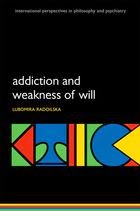.png) |
| Marco Canevelli |
The Imperfect Cognitions blog is launching a new feature, interviews with experts on topical issues.
For
Dementia Awareness Week (18-24 May 2014), I interviewed
Marco Canevelli on Alzheimer's disease. Marco is a neurologist, working at the Department of Neurology and Psychiatry of the “Sapienza” University of Rome. He is currently attending a doctoral school in neuroscience in Rome and he is a visiting researcher at the Institute of Aging in the Gérontopôle of Toulouse. His main clinical and research interests are Alzheimer’s disease and other dementias, subjective cognitive complaints, cognitive frailty, and dementia prevention.
LB: What would you say are the main implications of Alzheimer’s disease for cognitive function?
MC: "Alzheimer’s disease (AD) is the most common cause of dementia. In its typical expression, AD is a slowly progressive disorder characterized by the insidious onset, usually after the age of 65 years, of a progressive impairment of episodic memory. In particular, affected subjects may start repeating statements and questions over and over, forgetting conversations, appointments or events, misplacing possessions, often putting them in illogical locations.
Disorientation is also commonly observed at these early stages, and may involve both the temporal and spatial dimension. In parallel, impaired judgment, decision-making, and reasoning strongly limit the capacity of responding effectively to everyday problems, and managing occupational and personal interests.
During the course of the disease other cognitive symptoms may occur, such as aphasia (a disturbance of language comprehension and/or expression), apraxia (the inability to perform learned, purposeful movements), and agnosia (the inability to recognize familial objects and sensorial stimuli). Overall, these cognitive disturbances progressively limit the functional independence of the affected individual in preforming routine activities."

.png)
.png)

.jpg)



